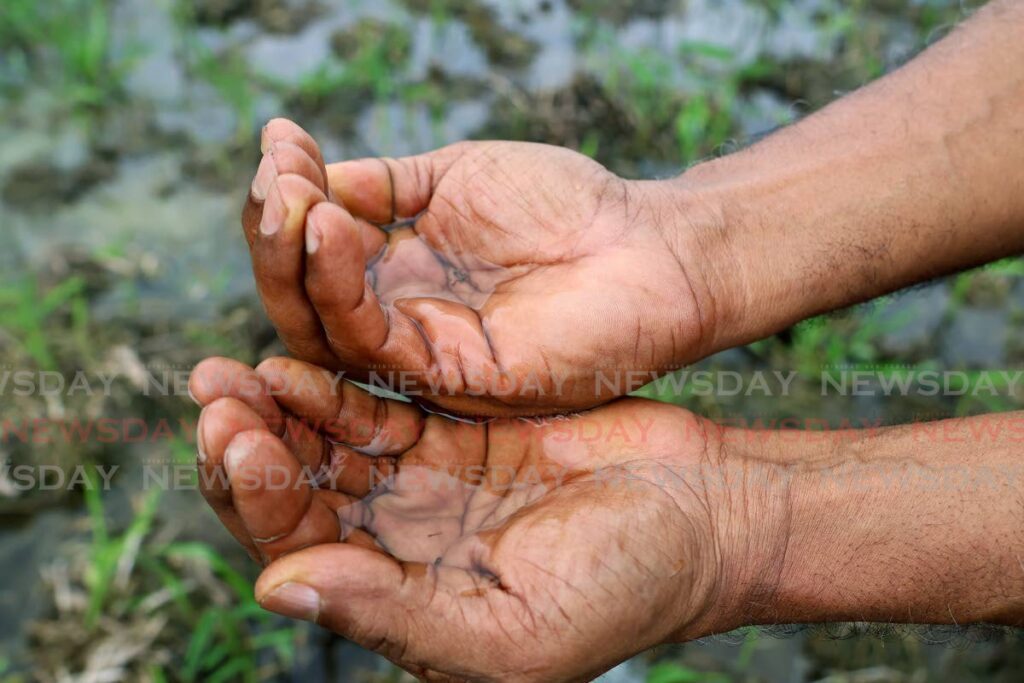Deyalsingh urges citizens to work together to fight dengue

HEALTH MINISTER Terrence Deyalsingh has said his ministry will impose fines of up to $3,500 on people whose premises become breeding grounds for mosquitoes
This decision follows the rise in dengue cases and related deaths.
The announcement, previously made by chief public health inspector Dr Mark Dookeran on June 20, was made again by Deyalsingh on CNC3's Morning Brew talk show on July 9.
As of July 9, Trinidad and Tobago has 229 lab-confirmed cases and two fatalities, according to the Caribbean Public Health Agency (Carpha), a rise from 126 cases on June 21.
Global and regional dengue trends
Deyalsingh said the dengue crisis is not limited to Trinidad and Tobago but is affecting the entire Latin American/Caribbean region.
Between 2022 and 2023, Deyalsingh said, the Caribbean saw a 300 per cent increase in cases.
“Globally, there are 3.4 million confirmed cases, 16,000 severe cases and 3,000 deaths as of April.”
Comparing statistics, Deyalsingh said Barbados, for instance, had reported 1,059 lab-confirmed cases and four deaths by October 2023.
He said while TT is in a statistically better position than other Caribbean countries, it is not a cause for celebration but to understand the nature of the issue.
“This is not just a Trinidad problem. It is a Jamaica, Belize and Barbados problem.”
Household vigilance and public health measures.
Deyalsingh called for community involvement, urging residents to organise community watch groups to help curb the spread of dengue
Deyalsingh said most cases in Trinidad and Tobago are concentrated in the counties of Victoria, Caroni and St Patrick, accounting for 80-90 per cent of cases.
He stressed chemical spraying in these areas is not the final solution to controlling the
Aedes aegypti mosquito, the main vector for dengue.
“Over-spraying can lead to resistance in mosquitoes and damage the ecosystem.”
Deyalsingh said spraying kills adult mosquitoes but not mosquito eggs, which can hatch in small amounts of stagnant water.
“One small bottle cap can hold over 1,000 eggs. Think about the hundreds of thousands we have of these littered on the ground in the country.
“If the public doesn’t get on board with source reduction, the mosquito will breed, and we will not get the results we need."
Educational campaigns and medical guidance
Manager of health promotion at the South-Western Regional Health Authority Dr Sandi Arthur, who was also a guest on the talk show, said understanding the course of dengue is important.
She explained the two phases of dengue infection: the febrile stage (early stage) and the critical phase.
“During the critical phase (day three-four), severe cases can lead to leaky blood vessels and fluid shifts, necessitating complete blood count (CBC) tests to monitor white blood cell count, haematocrit (red blood cell volume) and platelet levels.”
Arthur advised the public to stay hydrated and use paracetamol for fever management.
"Stick to paracetamol. Avoid things like ibuprofen, Advil – anything in the aspirin family can exacerbate the symptoms."
Arthur outlined the ongoing educational campaigns targeting household settings.
She said these campaigns include video clips and radio programme providing information on preventing dengue and managing infections.

Comments
"Deyalsingh urges citizens to work together to fight dengue"